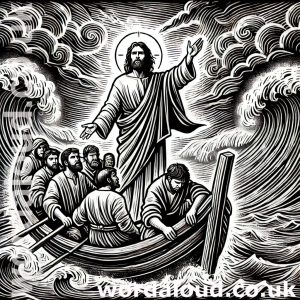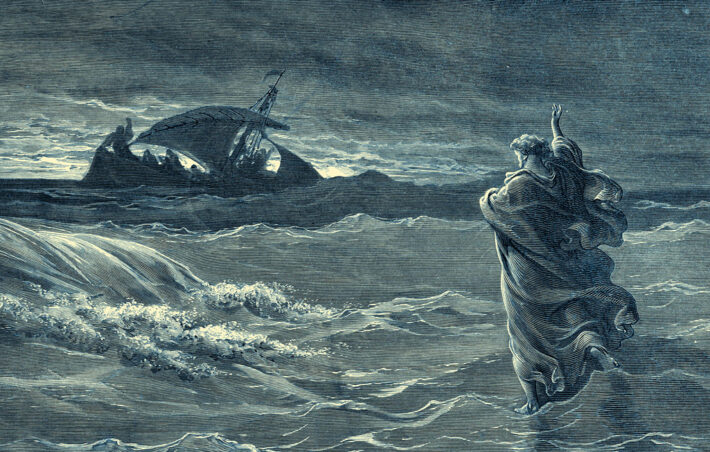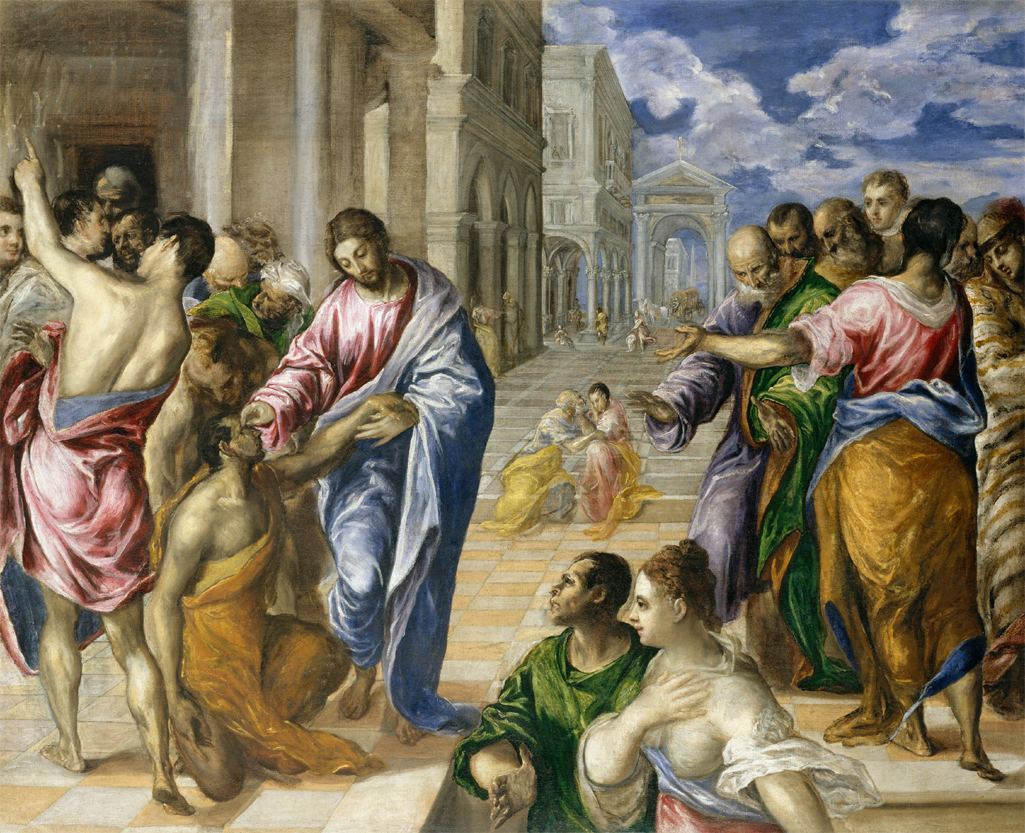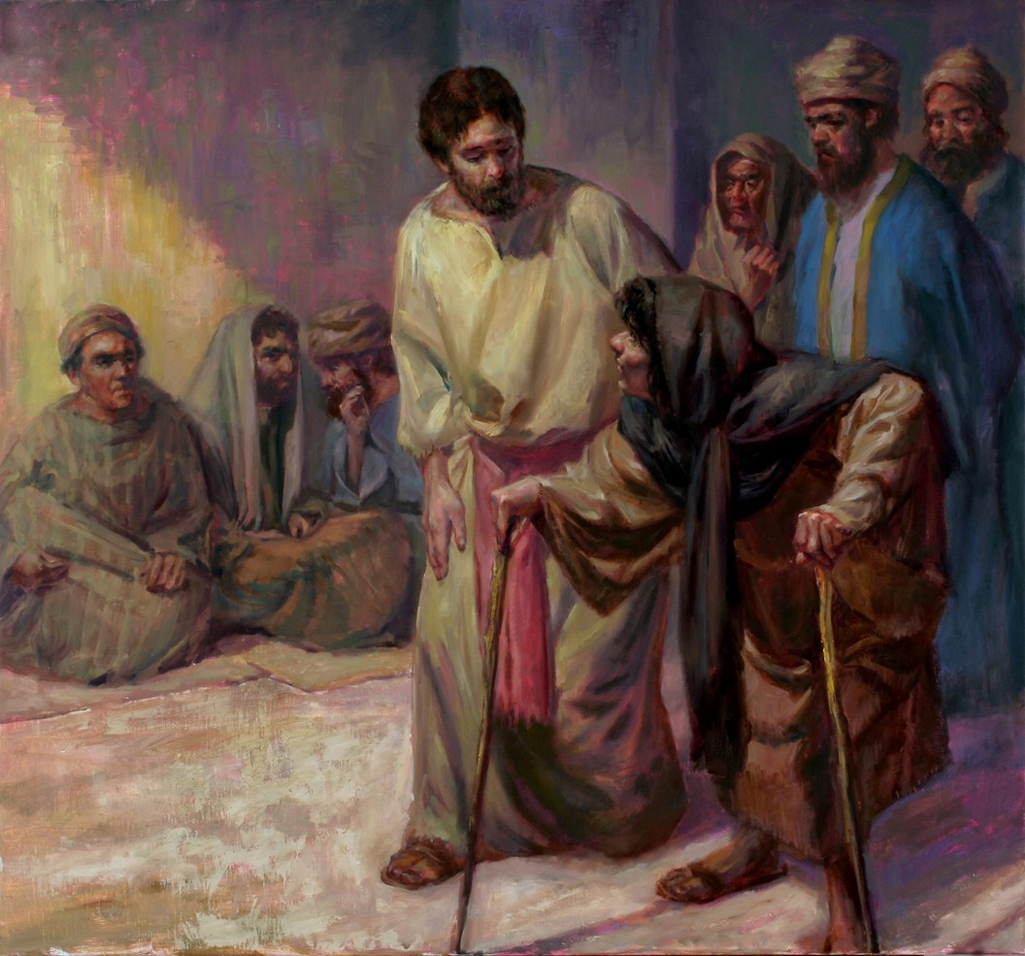Mark 6: 45-52 – Wednesday after Epiphany or 9th Jan. (Audio Bible, KJV, Spoken Word)
45 And straightway he constrained his disciples to get into the ship, and to go to the other side before unto Bethsaida, while he sent away the people.
46 And when he had sent them away, he departed into a mountain to pray.
47 And when even was come, the ship was in the midst of the sea, and he alone on the land.
48 And he saw them toiling in rowing; for the wind was contrary unto them: and about the fourth watch of the night he cometh unto them, walking upon the sea, and would have passed by them.
49 But when they saw him walking upon the sea, they supposed it had been a spirit, and cried out:
50 For they all saw him, and were troubled. And immediately he talked with them, and saith unto them, Be of good cheer: it is I; be not afraid.
51 And he went up unto them into the ship; and the wind ceased: and they were sore amazed in themselves beyond measure, and wondered.
52 For they considered not the miracle of the loaves: for their heart was hardened.
Immediately following the feeding of the 5000, the miracle of the multiplication of the loaves and the fishes, Jesus tells his disciples to get into a boat, so that they may get away from the multitude, while Jesus himself remains to disperse the multitude, and then to go alone into the hills, to a mountain, to pray.
Mark’s Gospel does not give Jesus’ reasons for acting so. John’s Gospel points out to us that the Jewish people had been expecting, as a sign, that the Messiah would repeat the miracle of Moses, feeding the multitude in the wilderness. This is a temptation to Jesus – the people might want to make him a king, according to their own preconceptions of the Kingdom. It is therefore necessary that Jesus withdraw himself, so that the Kingdom may be properly accomplished. Jesus does so, to spend time with his Father in prayer.
It seems a wonderfully symbolic moment: Jesus goes up to the mountain alone to pray, as if he is ascending into heaven, while the disciples are left in the midst of the sea, to try as they might to advance when confronted with contrary winds. It is so very late and the disciples are tired and struggling so hard. It is as if they have lost sight of Jesus in a spiritual sense, because when the disciples see Jesus walking on the water they suppose that he must be a spirit, and such a spirit as to make them very afraid.
Jesus would have walked past the disciples, but seeing their need he stops to reassure them. In doing so, he identifies himself in a similar way to that in which God the Father identified himself: it is I. We recall God’s naming himself, with a name that is also a refusal of a name: I am; I am being; I am that I am. It is I, be not afraid.
The contrary wind now ceases: Jesus is here, with us now. Still, however, the disciples do not understand what is happening. Their hearts are hardened. To read Mark’s Gospel especially is a wonderful lesson in recognition and misrecognition. So often, the disciples do not know that God is with them. It is as if the disciples, as Mark’s Gospel relates the events, are determined not to know Jesus, and instead to cling to the reality they thought they knew. This is a great lesson, when we find ourselves clinging to what we thought we knew, and so denying admittance to Jesus. We may scoff at the disciples of Mark’s Gospel, and yet the Gospel is an invitation to us to examine how readily we discover Jesus as God in our daily lives.
God our Father, light of all mankind,
make our hearts radiant with the spendour of that light
which long ago you shed on our fathers in the faith,
and give your people the joy of everlasting peace.
Through Christ our Lord.

![]()








